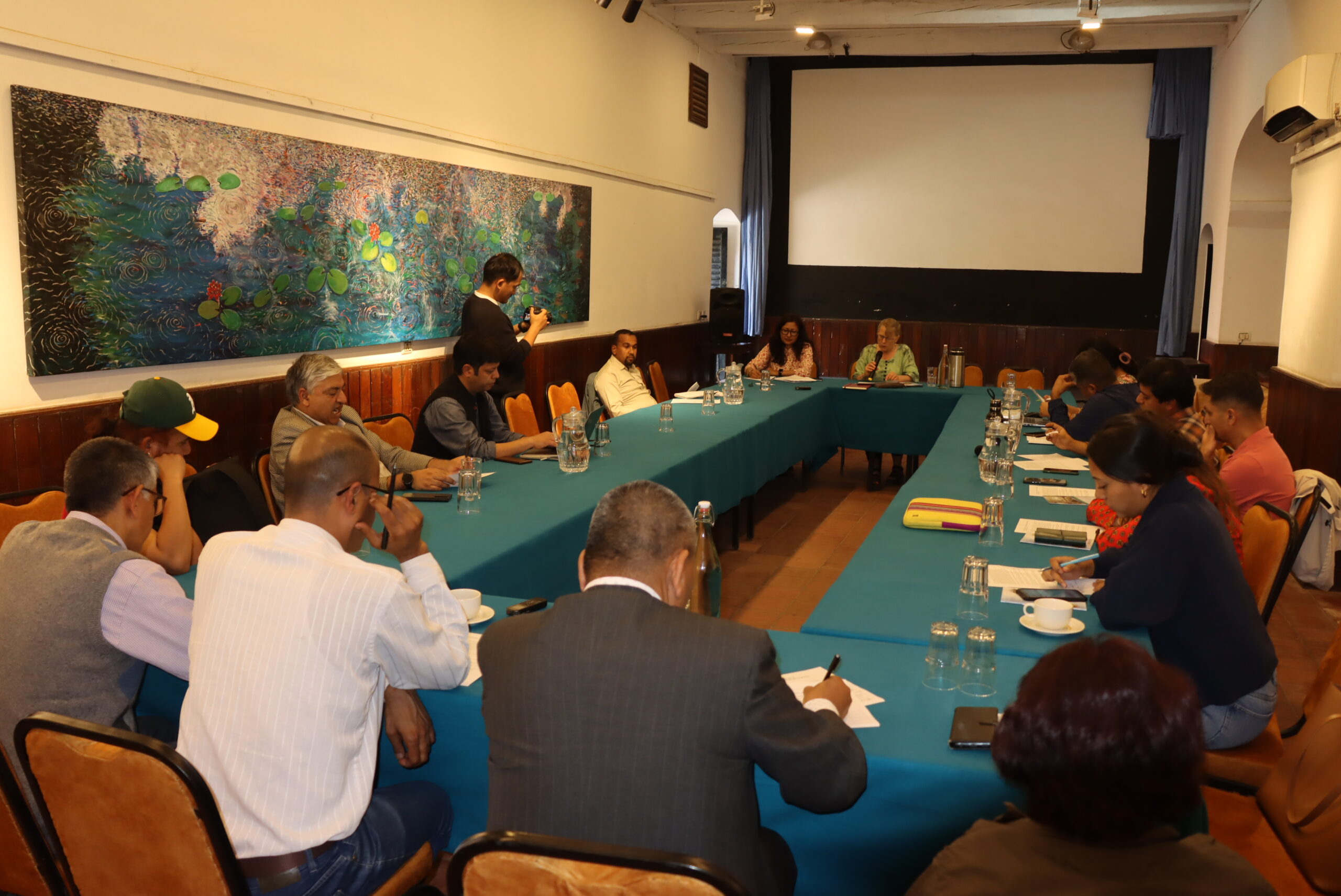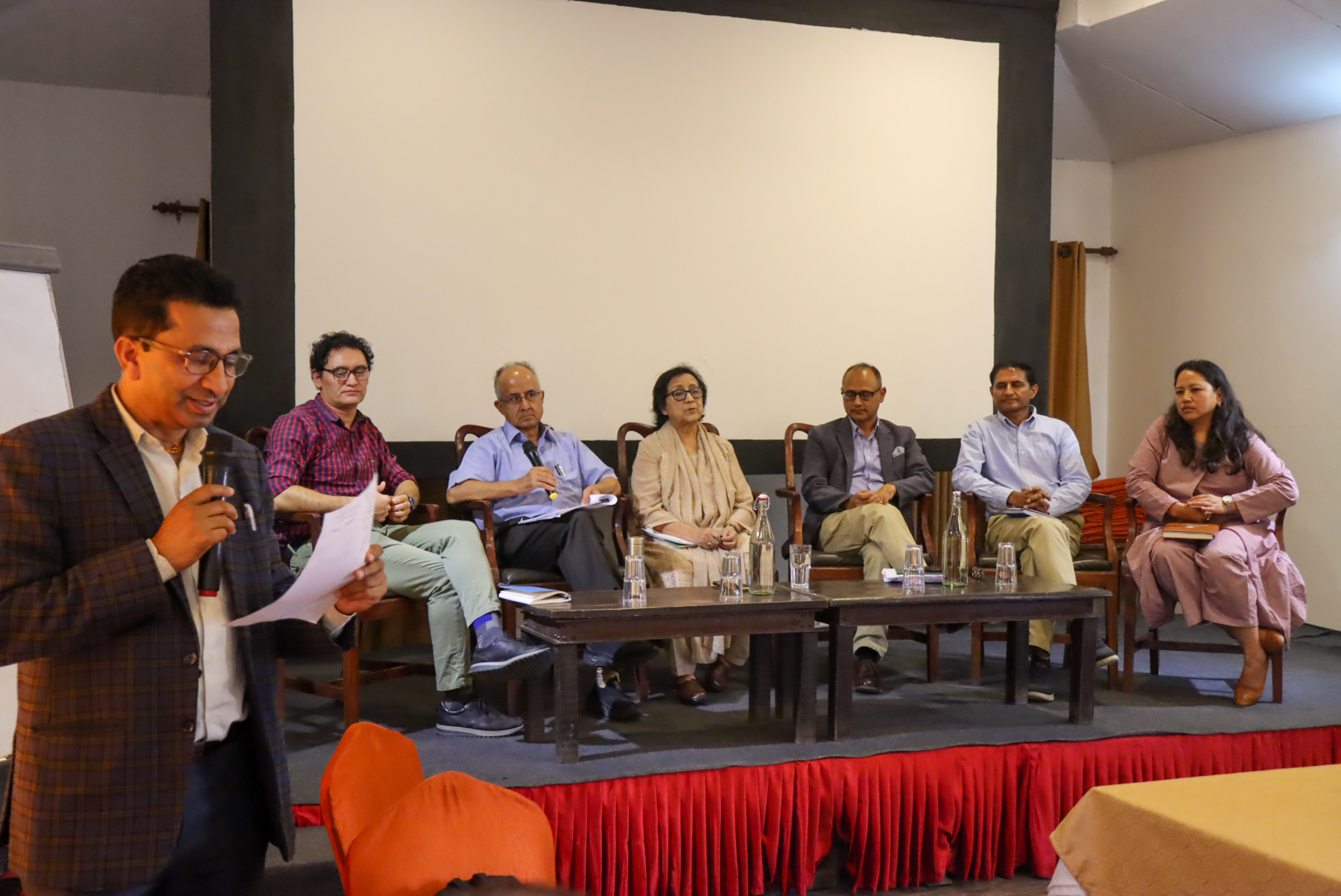On October 4th, 2024, the Southasia Institute of Advanced Studies (SIAS) held an insightful Future Himalayan Research Seminar titled “Seat at the Table: Diversity and Accountability in the Deliberative Process.” Facilitated by Dr. Anushiya Shrestha from SIAS, the seminar started with a warm welcome and introductions from both the presenter and participants.
Dr. Slesh A. Shrestha, an independent researcher from Kathmandu, gave an inspiring presentation centered on a Community-Driven Development (CDD) project implemented in 108 villages in Pakistan. The villagers were organized into Community Organizations (COs), which sent delegates to a Village Organization (VSO) that decided on the allocation of grants. The findings and reflection of Dr. Shrestha were based on the experimental design that subjected the study villages to either inclusion mandate (40% representation from women and poor), a ratification mandate (allocation decisions ratified by the village) or both. He explained that the inclusion mandate, with or without ratification, improved access of women and poor to the public investments while the effects of ratification mandate was null. He also shared the conflicts that emerged during the initial decision-making process, especially in villages with inclusion mandates subsided a year later. Dr. Slesh emphasized that although heterogeneity can bring some initial disputes, the inclusion mandate can improve the resource access of minority groups in CDD projects that have increasingly become an important tool for governments and aid agencies to promote economic and social development.
The seminar ended with an engaging discussion among participants, who emphasized these types of initiatives could be important for promoting positive change in the community, in our context as well.




